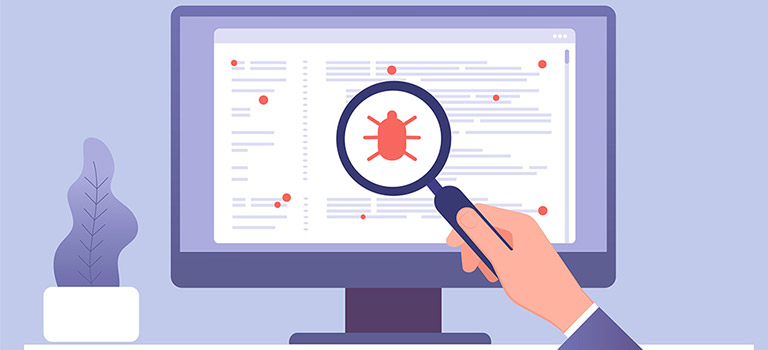Anti-Virus software is the layman’s solution to cybersecurity. Functioning as a first line of defense, Anti-Virus software works to prevent, detect, and remove malware from your computer. However, Anti-Virus software is not a cure all solution. In fact, IMB Knowledge Center published a piece on the limitations of Anti-Virus protection. In the article, they cite file size, scan time, and nesting depth as a few of the limitations.
Unfortunately, the reality is that there is no infallible software that will 100% protect your computer from all threats. However, this article is not to disparage Anti-Virus software. In contrast, it is to simply help people make an informed decision via understanding the common issues that all software is susceptible to.
After all, there are other common issues with Anti-Virus software that continue to to cause concern among the cyber community and, unfortunately, continue to endanger the security of people who buy into the advertising hype.
Problems with Anti-Virus Software
Renewal Costs
Many popular Anti-Virus software companies will automatically renew billing on a yearly basis. In fact, in 2009, both McAfee and Symantec were the subject of a lawsuit in which they agreed to pay 375,000 each for charging people’s credit cards without their permission. Although the majority household name companies have paid a price for this, many mid-tier, relatively obscure Anti-Virus Software providers may still practice auto-billing.
False Anti-Virus Software
There has been a disturbing trend of fake Anti-Virus software that is actually malware disguised as software. This Trojan horse method is an effective way to trick people into downloading harmful malware onto their computers, leaving them open to vulnerabilities.
Programs that use this practice are called Rogue Security Software. There have been many examples of Rouge Security Software, including MS Anti-Virus, MS Anti-Virus, Anti-Virus Gold, MacSweeper, and ContraVirus. The removal of these programs is complex and often requires the help of a professional.
False Positives
False positives are when your Anti-Virus software incorrectly tags normal, non malicious software as dangerous. A false positive may not seem like a big deal. However, if the program tags a certain file as dangerous, your computer can go haywire. Many programs will simply delete or deactivate programs and files they see as dangerous, which can crash important programs, or even paralyze entire operating systems.
One known example of this was when Microsoft Security Essentials tagged Google Chrome as malicious. As a result, the software removed Chrome from a multitude of computers. Google had to eventually run a patched update of their chrome browser for user to download. Around 3,000 users were impacted.
Irrelevancy
Software can become outdated very quickly. With Anti-Virus software, it is very easy for many programs to fall into a trap of reacting to new viruses rather than preventing them. This is because many programs are not effective against new strains of malware, spyware, etc. Hackers engineer many of their malware strains specifically to bypass popular programs. Additionally, hackers test their malware on all major programs beforehand. Consequently, people are often slow to update anything on their computers, leaving many people vulnerable to a long list of viruses and the like.
Update Interference
Anti-Virus Software can often interfere with updates, either by preventing them, or or harboring them incomplete. Therefore, people often have to disable their software while updating their system, firmware, or programs. One example is Steam, a video game distribution program, stating on their website that “some malware tools may interfere with Steam”, and urging users to make educated exceptions to allow Steam to run normally.
Alternative Solutions
There are multiple alternatives to using Anti-Virus Software. These alternatives can can either replace your programs, or unify your overall security by running alongside your current programs.
Hardware and Network Firewall
Firewalls protect your system by monitoring and controlling information traffic based on a preset list of rules to ensure security. Firewalls pair well with Anti-Virus software as firewalls act as a barrier to outside threats while virus software protects against internal attacks.
Cloud Computing
Cloud Anti-Virus software functions as a modern update. These sophisticated programs used Machine Learning algorithms to detect and destroy threats from a single location, rather than on each specific workstation. This helps mitigate a lot of software installation issued that plague traditional software. As is the case with most Cloud Computing, Cloud Anti-Virus spans across multiple platforms, giving you more comprehensive security, as well as more secure endpoints.
Online Scanning
A slew of scanning tools can help clean up your computer and offer a more short term solution to specific infections. With these programs, you can customize what you want to scan. For example, maybe you do not want to scan your entire computer. Online Scanning tools can scan more specific parts of your computer, like local disks, folder, files, etc. Many malware strains immediately target and disable Anti-Virus programs. Therefore online scanning may be the only way to actually detect an infection.
Tags: Anti-virus, Cloud Computing, Cybersecurity, Firewall, Machine Learning, McAfee, Network, Scanning, Software, Steam, Symantec, Trojan


